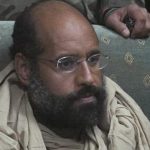By Mabvuto Banda
LILONGWE (Reuters) – Malawi President Bingu wa Mutharika has died after a heart attack,
medical and government sources said on Friday, although few of his countrymen mourned a leader widely seen as an autocrat
responsible for a stunning economic collapse.
The 78-year-old was rushed to hospital in Lilongwe on Thursday after collapsing but was dead on
arrival, the sources said. State media said he had been flown to South Africa for treatment although his immediate
whereabouts remained unclear.
Medical sources said the former World Bank economist had been flown out because a power
and energy crisis in the nation of 13 million was so severe the Lilongwe state hospital would have been unable to carry out a
proper autopsy or even keep his body refrigerated.
Many Malawians blamed Mutharika personally for the economic woes,
which stemmed ultimately from a diplomatic spat with former colonial power Britain a year ago.
“We know he is dead and
unfortunately he died at a local, poor hospital which he never cared about – no drugs, no power,” said Chimwemwe Phiri, a
Lilongwe businessman waiting in a snaking line of cars for fuel at a petrol station.
There was no official
announcement. State media said a statement would be made at midday (1000 GMT).
As rumours of the death of the
self-styled ‘Economist in Chief’ swept the capital on Thursday night, there were even pockets of drunken jubilation among
locals who saw him turning back the clock on 18 years of democracy in the ‘Warm Heart of Africa’.
“I am yet to see
anyone shedding a tear for Bingu,” said Martin Mlenga, another businessman. “We all wished him dead, sorry to say
that.”
The constitution says Vice-President Joyce Banda will take over as head of state. Analysts said there would be
a smooth transition even though Banda was booted out of Mutharika’s ruling DPP party in 2010 after an argument about
succession.
Mutharika appeared to have been grooming his Foreign Minister brother Peter as his successor, although
there was little question of the army and police not respecting the law, said former Attorney General Ralph
Kasambara.
“The army has been very professional,” Kasambara, now a human rights activist, told Reuters. “He was very
unpopular. People were praying for his death. We can’t get any worse than we are.”
The next election is due in
2014.
FEW MOURNERS
Police deployed in force across the capital immediately after Mutharika’s hospital
admission, although it was business as usual on Friday as residents went about their daily struggle to get
by.
Mutharika came to power in 2004 and presided over a seven-year boom – underpinned by foreign aid and favourable
rains – that made Malawi one of the world’s fastest-growing economies.
Advertisement
The good times came to a halt last year after a dispute with Britain, Malawi’s biggest
donor, that led to tit-for-tat diplomatic expulsions and the freezing of millions of dollars of aid.
The cause of the
row was a leaked diplomatic cable that accused Mutharika of being “autocratic and intolerant of criticism”.
The aid
freeze exacerbated an already acute dollar shortage, hampering imports of fuel, food and medicines, and leading to a fall in
the value of the kwacha against the dollar.
Malawi’s diplomatic isolation and economic plight worsened in July 2011
when the United States shelved a $350 million overhaul of the dilapidated power grid after police killed 20 people in a
crackdown on an unprecedented wave of anti-government protests.
Mutharika hit back in typically combative style,
urging his supporters last month to “step in and defend their father rather than j



